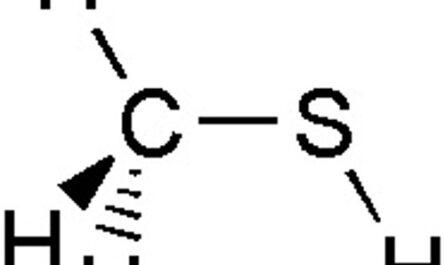The oil and gas industry relies heavily on drilling chemicals to efficiently extract hydrocarbons from underground reservoirs. These chemicals play a vital role at every stage of the drilling process from well planning to production. Without the use of scientifically formulated drilling chemicals, operations would become inefficient, costly and potentially unsafe. In this article, we will explore some of the key drilling chemicals used and their functions.
Mud Additives
Drilling fluids, also known as drilling muds, are essentially mixtures of various additives suspended in a liquid medium. The liquid is usually water or oil based depending on the drilling environment and purpose. Mud additives come in a wide range including polymers, surfactants, dispersants, fluid loss control agents and others.
The primary function of drilling muds is to transport drill cuttings to the surface, cool and lubricate the drill bit, reduce friction, control formation pressures and maintain wellbore stability. Each additive is carefully engineered to provide a specific benefit to the overall mud system. For example, polymers are added to improve viscosity and suspension properties. Surfactants lower fluid tension and help disperse cuttings. Fluid loss control agents form a thin, low permeability filter cake on the borehole wall to prevent fluid losses into formation pores and fractures. Proper mud engineering and additive selection is crucial for wellbore integrity and efficient drilling operations.
Drilling and Cementing Aids
Once drilling reaches total depth, wells need to be prepared for installation of production casing. This involves cementing of casing strings to provide zonal isolation. A variety of cement additives are used such as accelerators, retarders, fluid loss control agents and dispersants. Accelerators allow cement slurries to set quickly whereas retarders provide controlled setting times. This ensures adequate placement and setting of cement before drilling can resume to next section. Casing centralizers are also important to ensure uniform cement sheath thickness around the casing string.
Drilling chemicals also include specialty additives used during drilling operations like shale inhibitors, lubricants, lubricant enhancers and borehole stabilizers. Shale inhibitors prevent swelling and hydration of shale formations. This controls mud losses into shales and helps wellbore stability. Careful selection and dosage of these drilling aids is crucial for efficient and cost effective operations.
Well Clean Up
When drilling is complete, wells need to be prepared for production, which involves removal of mud systems and installed downhole equipment. Well clean up chemicals play a vital role in clearing away drill cuttings and debris from the wellbore. Cleaners dissolve residual mud filter cakes, breakers decompose polymer muds into low viscosity systems and removing any obstructions ahead of completion operations. Biocides are also added to control microbial growth in pipelines and downhole. Proper cleaning ensures flow conditions are optimized for completion, stimulation and production operations.
Completions and Stimulations
Fracturing and acidizing treatments rely on tailored fluid systems and specialized chemicals. Proppant transport fluids need to be specially designed to effectively place proppants deep into fractures created. Common additives used include crosslinkers, friction reducers, corrosion inhibitors and breakers. Breakers are especially important to ensure removal of gels post-treatment for conductivity. Acidizing fluids likewise require pH buffers, corrosion inhibitors and chelating agents. Chemical engineers meticulously design fluid systems factoring in geology, well conditions and treatment objectives. Post-job clean up again relies on appropriate chemicals to remove all residues.
Production Chemicals
Even at the production stage, chemicals continue playing a critical maintenance role. Biocides, scale and corrosion inhibitors control undesirable downhole issues that can undermine flow assurance and equipment integrity over time. Production chemicals are formulated for efficient, non-damaging displacement into wells without adversely affecting current operations. Their ongoing, controlled application is important for prolonging well and facility uptime. Specialty treatment chemicals may also be required periodically to clear asphaltenes, waxes, emulsions or other obstructions impacting flow. Careful fluid and solid contaminant monitoring helps properly diagnose and manage wells chemically.
Environmental Regulations and Safety
Being extensively used in environmentally sensitive oilfield operations, drilling chemicals undergo rigorous toxicity testing and evaluation before commercial use. They must comply with stringent regulations for safety, handling and disposal. Many service companies actively research greener substitutes using bio-based, non-toxic components easily biodegraded. Proper rig-site control ensures chemical management in line with environmental standards while mitigating personnel contact and exposure risks. Drilling supervisors are thoroughly trained on chemical hazards and emergency response procedures. Strict regulatory adherence helps industry sustain social license to operate through chemically aided well construction.
In summary, the oil and gas industry depends heavily on formulated drilling chemicals to make extraction operations successful and cost effective. From drilling to completion and production, their diverse applications play a crucial technical role. Advancements in chemistry and chemical engineering continuously improve efficiency, safety and environmental performance. Strict compliance with regulations reinforces sustainability. Drilling chemicals thus remain fundamental to maintaining energy supplies through optimized subsurface hydrocarbon recovery worldwide.
Note:
1. Source: Coherent Market Insights, Public sources, Desk research
2. We have leveraged AI tools to mine information and compile it




